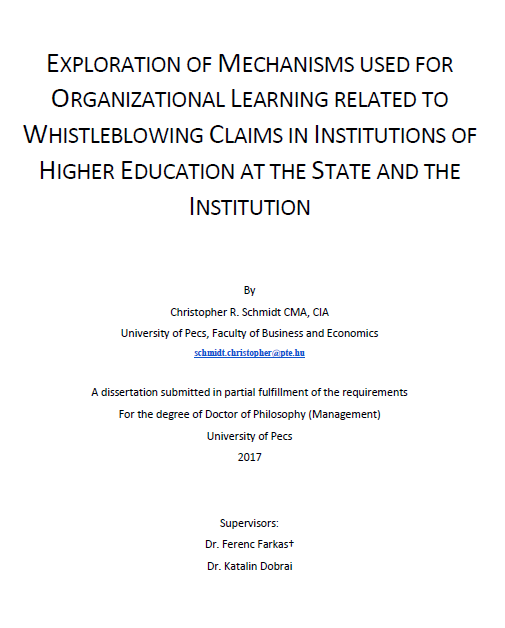Exploration of Mechanisms Used for Organizational Learning Related to Whistleblowing Claims in Institutions of Higher Education at the State and the Institution
Abstract
Whistleblower claims involve accusations of fraud, theft, or misconduct by employees or leaders, consistently uncover long undetected fraud schemes and misconduct, and are an essential component of effective governance. Each accusation made, valid or not, presents a learning opportunity for management. Current governance practices used to solicit, manage, resolve, and learn from whistleblower claims are explored to understand how colleges and universities are working to prevent wrongdoings. Comparative multi-level studies analyze actual multi-year claims data from select states and institutions leading to an expanded comprehensive categorization of claims. A rubric of key control points is used to compare international practices across prominent institutions in the United States, the United Kingdom, and in Hungary, with a particular focus on increased transparency provided by Internet communication technologies. A survey of individual experience is conducted to estimate the rate of exposure to wrongdoings on campus (high) and the rate of exposure to training (low). Whistleblower claims collected are found to be subject to filtering by the institutional or legislative historical legacy, which varies widely by jurisdiction. Internet communication technologies are found to improve the transparency of governance and administration of claims. Management disciplines, where present, to ensure that institutions are learning from claims varied widely at both the state and institutional levels of governance. A framework for proactive management is presented to ensure that structured systematic learning can occur.

